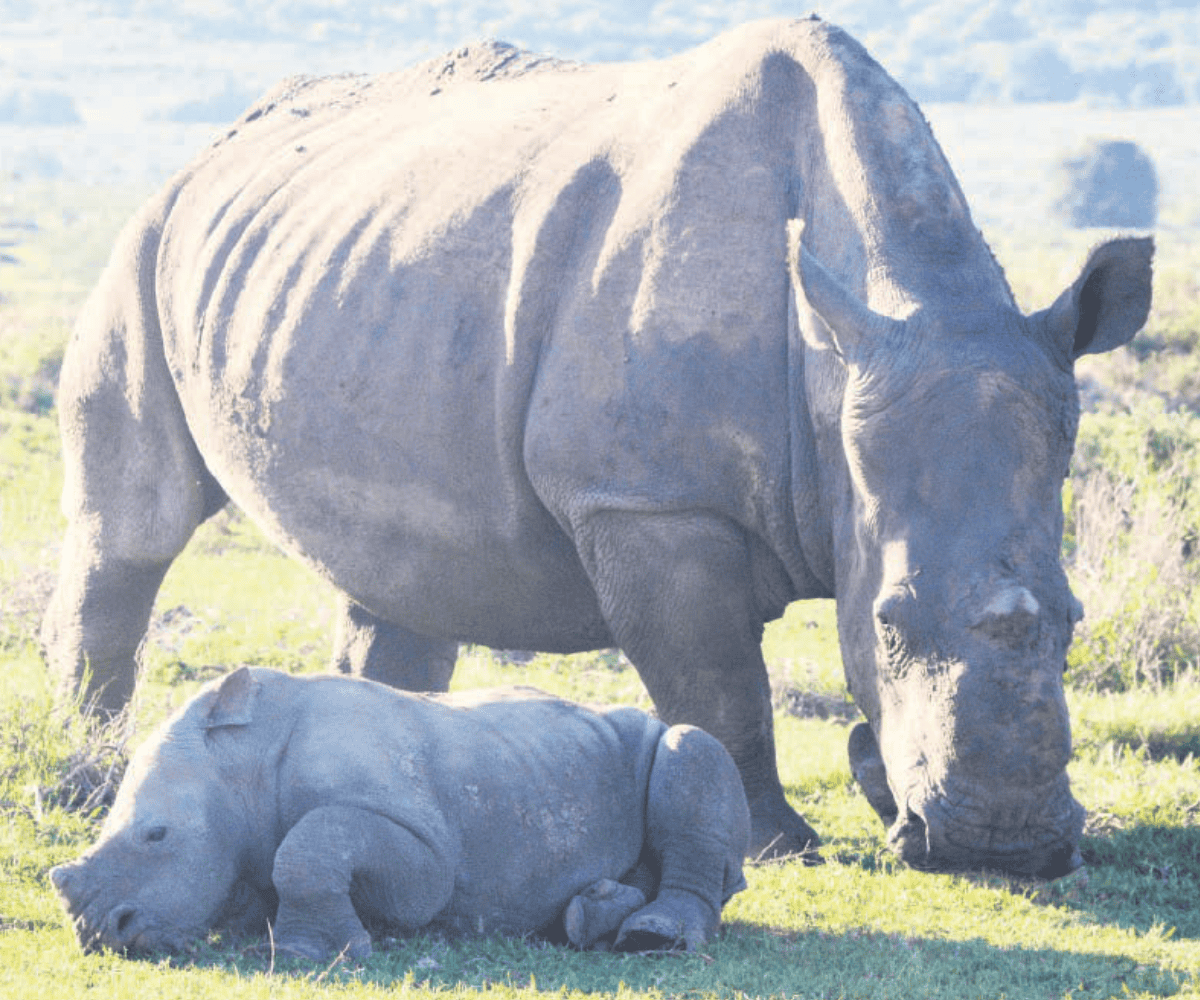A chilling new book recounts the Eastern Cape’s darkest chapter in wildlife crime – and the gang that pioneered a cruel new method.

Sharing beers with game rangers above the Kariega River in 2011, they imparted horrid news: rhino poachers in that part of the Eastern Cape were no longer just shooting animals with high-powered rifles, some had begun darting them with tranquillising drugs.
What followed was heartless. Incapacitated animals’ horns were chopped from their faces and they were left to drown in their own blood.
It was an almost silent assault and perpetrators were gone from the scene before antipoaching units were aware anything was amiss.
Apart from the carnage, the modus operandi cast suspicion on local vets, many of whom were – and continue to be – passionate conservationists.
Having travelled widely and often throughout the Eastern Cape for well over a decade, it seems every game reserve I have visited has a heart-rending tale of rhino poaching to tell.
Some of them have happy endings, such as that of Kariega’s Thandi who, having only just survived having her horns hacked out, went on to deliver several calves, but these are few and far between.
In the case of Mount Camdeboo Private Game Reserve, one female was at full term when she was slaughtered.

Picture: Jim Freeman
There is a bronze cast of her foetus in one of the lodges, reminding guests of the killers’ barbarity.
ALSO READ: Film used as a tool to combat the scourge of rhino poaching
I’d long heard mention of the Ndlovu and Chitiyo gangs that had been targeting reserves in the province, but details were scant and those in the know were close-mouthed.
It was only when I met Div de Villiers a few years ago that a few pieces of the puzzle were revealed to me.
In the next few weeks, De Villiers’ tale iziNdlovu – the true story of South Africa’s greatest rhino poaching case (New Voices Publishing Services) – goes on sale.
Written in collaboration with Adrienne Carlisle of East London’s Daily Dispatch newspaper, the book provides the full, brutal picture and is written from the dual perspectives of the lead-up to the Ndlovu gang’s arrest and an account of their trial.
De Villiers, former director of the Eastern Cape environmental compliance and enforcement unit – the so-called Green Scorpions – writes in the preface: “The names of those arrested were Jabulani Ndlovu, Forget Ndlovu and Sikhumbuzo Ndlovu.
“It is incorrect in the Nguni languages of isiXhosa or isiZulu to refer to people with the ‘izi’ prefix because it is used for animals.
“However, the cruelty these men displayed during their reign of terror on game reserves throughout South Africa led many to call them animals.”

Ndlovu is the Nguni word for elephant. The Ndlovu gang pioneered the use of game-capture darts for poaching in the Eastern Cape.
ALSO READ: Cross-border crackdown on illegal wildlife trade intensifies
“To these prehistoric, armoured animals, the impact of a dart must be like a bee sting.
“The instant they feel the prick, they turn rapidly to look in the direction from where the dart came. Usually, their poor eyesight fails them. A silent, well-hidden darter who is downwind of his quarry will remain undetected.
“Stomping the ground in anger, the darted rhino may run a few metres at most but soon dismisses the incident and resumes grazing. A darter can then target the next rhino and the next.
“At least 15 game farms were affected over seven years from 2009 and we know of 22 rhino poached in this way,” writes De Villiers.
The gang was caught red-handed in Makhanda on 17 June, 2016 with a “magnificent 72cm-long, 10.7kg bloody horn”, a dart gun, tranquilliser kit and saws.
The trial in the Eastern Cape High Court in Makhanda was anything but straightforward, but the gang was convicted, largely on the strength of cellphone signal triangulation evidence that placed the leader regularly in close proximity to Johannesburg’s Chinese community.
Albeit without subsequent arrests, this solved the mystery of where the Ndlovus sourced immobilising narcotics.
The poachers were each sentenced to an effective 25 years in jail.
NOW READ: Notorious South African wildlife criminal’s dubious pursuit of hunting permit in Botswana






